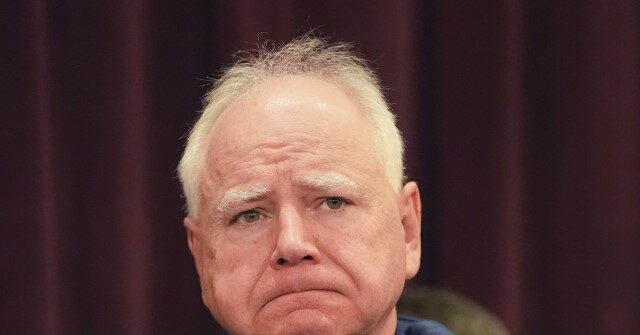In a recent interview with WPVI in Philadelphia, Minnesota Governor and 2024 Democratic Vice Presidential candidate Tim Walz addressed the ongoing discourse surrounding the differences between Vice President Kamala Harris and President Joe Biden. While acknowledging that there are distinctions between the two, Walz emphasized that these differences should not be the primary concern for voters. Instead, he urged voters to focus on the broader implications of the upcoming election, particularly in relation to former President Donald Trump and his policies.
When asked about how the current administration, of which Harris is a part, could effectively turn the page, Walz highlighted the critical choice facing voters between the Democrats and Trump. He argued that the ramifications of a Trump presidency would be severe, pointing to his past policies that could undermine health care, reproductive rights, and social equity. By contrasting Harris and Biden with Trump, Walz sought to shift the narrative from internal party debates to the pressing issues at stake, positioning the Democratic ticket as a bulwark against the potential regression in rights and services that a Trump administration could represent.
Walz also emphasized the significance of Harris’s recent proposals, mentioning her advocacy for expanding Medicare to cover home health care, vision, and hearing for a significant portion of the population. These initiatives, he contended, are transformative and demonstrate a commitment to enhancing health care access. Additionally, he discussed the importance of facilitating home ownership and expanding apprenticeship programs, which aim to lower barriers to federal employment based on skills rather than educational attainment. Such measures, Walz argued, showcase a progressive vision that helps bridge systemic inequalities, enhancing opportunities for all Americans.
Throughout the interview, Walz maintained that the distinct differences between Harris and Biden should not distract voters from recognizing the stakes involved in the election. He suggested that attention should remain focused on Trump’s agenda, particularly his expressed intent to impose a national abortion ban and provide tax cuts to the wealthiest individuals in the country. By framing the election as a choice between the progressive values represented by the Democratic candidates and a regressive agenda typified by Trump, Walz aimed to galvanize voter support around fundamental issues affecting their lives.
In his overarching message, Walz called for unity among voters who might be concerned about the Biden-Harris administration’s record. He underscored that while it is natural to have differences within the party, the immediacy of the electoral contest necessitates a collective focus on defeating the potential threats posed by Trump. His assertion reflects a standard strategy in political campaigning where the narrative is shaped to consolidate support around a common enemy rather than allowing internal party divisions to fracture voter enthusiasm.
Ultimately, Walz’s interview at WPVI highlighted the strategic communication essential for the Democratic campaign as it prepares for the 2024 election. By emphasizing a clear dichotomy between Democratic principles and Trump’s policies, the campaign seeks to define the election narrative in terms of significant societal stakes, compelling voters to prioritize broader issues over concerns regarding individual candidates’ differences. As the electorate prepares for what promises to be a contentious election season, Walz’s comments serve as a reminder of the challenges and choices that lie ahead for both parties in addressing the needs and rights of American citizens.

